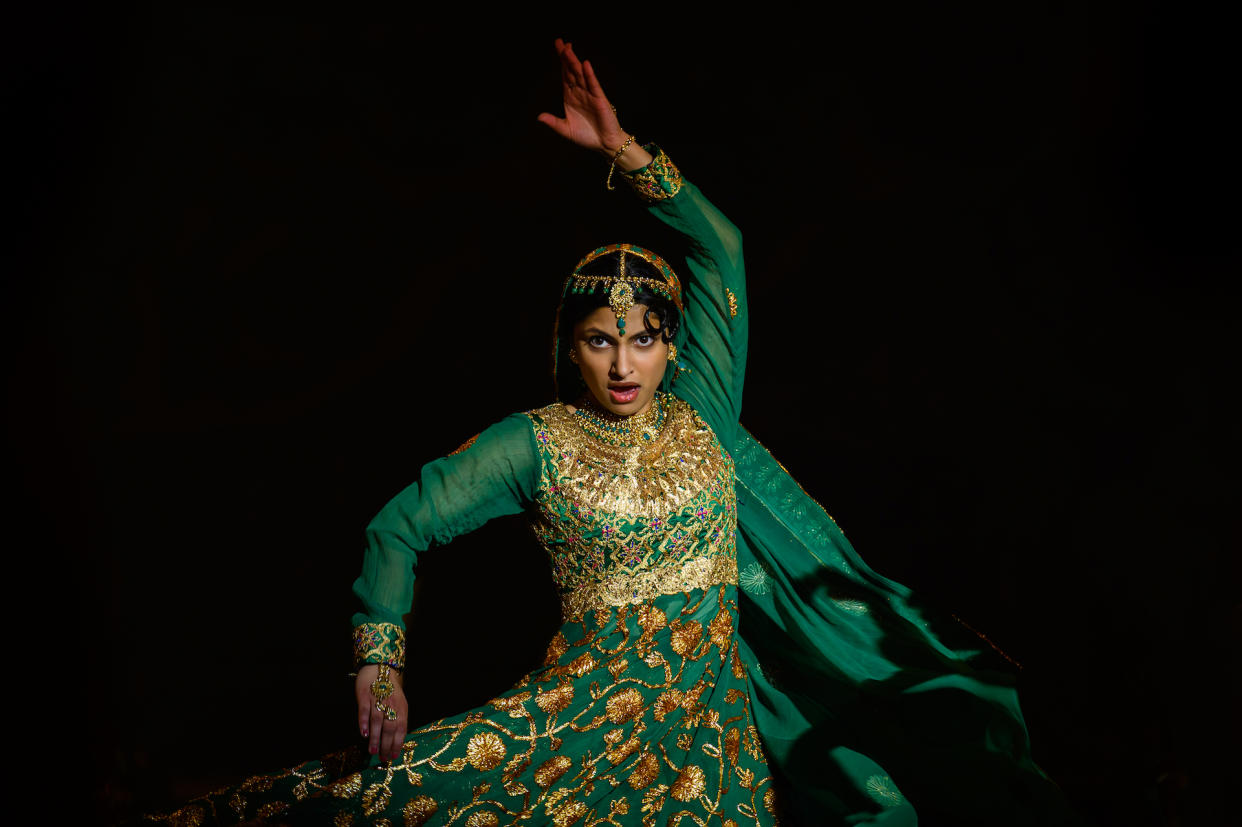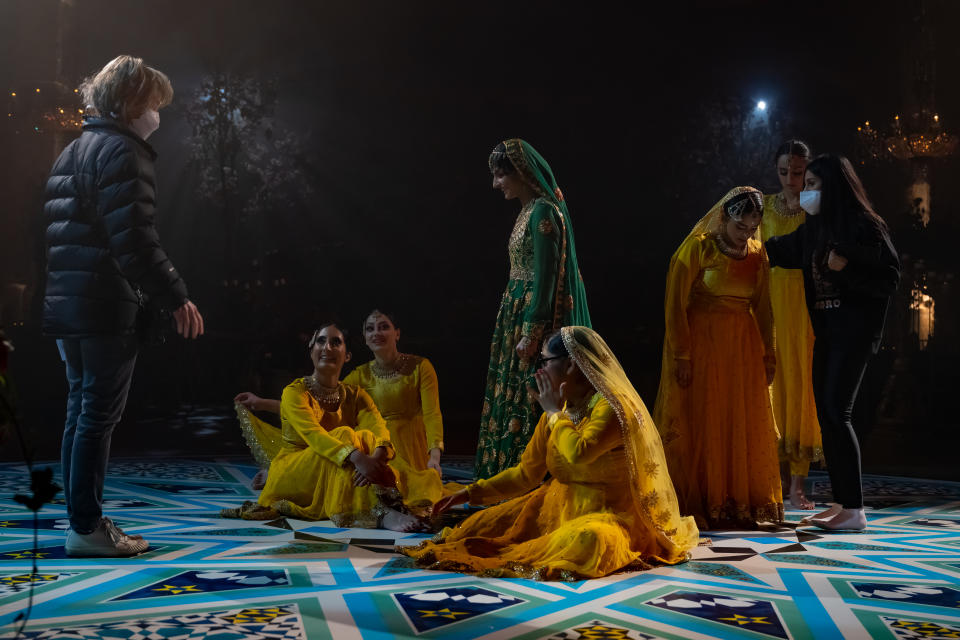‘Polite Society’ Hides a Brilliant Bollywood Tribute in Plain Sight

- Oops!Something went wrong.Please try again later.
- Oops!Something went wrong.Please try again later.
- Oops!Something went wrong.Please try again later.
- Oops!Something went wrong.Please try again later.
- Oops!Something went wrong.Please try again later.
- Oops!Something went wrong.Please try again later.
- Oops!Something went wrong.Please try again later.
- Oops!Something went wrong.Please try again later.
[Editor’s note: This story contains spoilers for “Polite Society.”]
It took everything I had not to yell out loud during “Polite Society.”
More from IndieWire
How 'We Are Lady Parts' Creator Nida Manzoor Blew Up the Action-Comedy for Her 'Bonkers' Film Debut
Ethan Coen's New Film 'Drive-Away Dolls' Adds Pedro Pascal and Matt Damon
Not because of the intense fight sequences, killer martial arts, or even that twist — what had this reporter out of her seat was a dance sequence that unfolds during the film’s final act. As Ria (Priya Kansara) dances at sister Lena’s (Ritu Arya) wedding, she aims to “distract” the assembled guests while her friends are busy executing a master plan that’s consumed most of the film’s running time. Dressed in an emerald-green outfit, Ria takes the stage, and the opening notes of “Maar Dala” begin to play.
Composed by Ismail Darbar with lyrics by Nusrat Badr, “Maar Dala” first appeared in Sanjay Leela Bhansali’s 2002 film “Devdas,” based on 1917 Sarat Chandra Chattopadhyay novel of the same name. In the film, Madhuri Dixit-Nene performs the number (sung by Kavita Krishnamurthy and K.K.) as courtesan Chandramukhi, declaring that Devdas’ arrival (Shah Rukh Khan) has “slain” her with joy.
Hum pe yeh kisne
Hara rang dala
Khushi ne humare hume
Maardala…Allah…
Who has thrown on me
This green color
My happiness has
Killed me…oh god…
“Growing up loving Bollywood films, I was like, ‘I gots to do this,'” Manzoor told IndieWire during a recent interview. “In a weird way, I’m like, ‘What if this is the only film I get to make?,’ so I’ve got to put in all the things I love, and part of that is honoring Bollywood. … Maar Dala’ just lyrically works. It worked on the two levels. I didn’t put any subtitles in — South Asians will get it. It’s a little extra something.”
The “Polite Society” performance is a tribute to the original on every level, from Kansara’s dazzling green costume to the choreography (she has trained in the classical Indian dance forms of Bharatanatyam and Kathak, the latter of which infuses this piece) to the ensemble movement to the ornate floor upon which everyone dances.
The song also takes on added meaning as Ria uses it to warn Lena’s fiancé Salim (Akshay Khanna) that she knows what he’s hiding: that he’s responsible for his first wife’s death and is poised to hurt her sister in the same way.
Manzoor said that she loves films that also love films, citing the works of Quentin Tarantino, Pedro Almodovar, and Edgar Wright. “There’s homage, and there’s stealing,” cinematographer Ashley Connor told IndieWire. “Nida, the actors, everybody who really grew up watching Bollywood films … that was specifically something that we really wanted to homage.”
Clearing music — especially from another country — can be challenging and expensive on a feature film, but Manzoor told IndieWire that she had “Maar Dala” in the script from the beginning, and no other options if it didn’t clear. She made it a priority as soon as the film was greenlit and credits the might of Universal for helping her get it.
Connor studied the “Devdas” sequence (“it’s just so incredible”) so that she and her team could “honor the reference without making the reference.”
The song also honors both Bollywood and Broadway tradition (and the Greek chorus if one journeys far enough back) by filling the scene with dramatic irony. In Farah Khan’s 2007 film “Om Shanti Om,” Shahrukh Khan’s titular hero sings the entire plot of the movie in “Dastaane” — a number framed as entertainment for the large audience in the scene, but which Om uses to directly address the villain (Arjun Rampal) and foreshadow his comeuppance.
Har gham ko humne chupaya
Har sitam ko haske uthaya
Kaanto ko bhi gale se lagaya
Aur phoolon se zakhm khaya
I hid every sorrow
I faced all the problems smilingly
I even hugged the thorns
And was hurt by the flowers

Parisa Taghizadeh
It’s fair to say “Maar Dala” is one of the most prolific picturizations of a Bollywood song this century (if not ever). Dixit Nene is among the Indian film industry’s most hallowed and beloved heroines, recognized particularly for her expressive presence as a dancer. “Devdas” — which debuted at Cannes and was the most expensive Indian film ever made at the time — was Bhansali’s fifth feature and cemented him as a master of scale and spectacle. It’s not an homage one takes on lightly.
“I’m no crazy pro or anything, I’m no Madhuri Dixit,” Kansara told IndieWire. “But I really felt so honored to be able to do this dance because I watched ‘Devdas’ when I was little and I loved it. She was this amazing, mesmerizing person on screen — like, how could somebody be so enchanting?”
As Connor points out, Kansara didn’t have to live up to Dixit-Nene’s performance, she simply had to embody a teenage girl dancing at a wedding. “There was very specifically minded curation of what that meant. It’s like it should look good, but it’s not diva-like,” she said.
It should have been daunting for Kansara — who already had to learn martial arts to get in the head of “this bloody psychotic character” for her first feature film; Ria wants to be a stunt performer, and thus the character is constantly doing crazy physical feats — but the actor found a way to defuse the pressure.
“The idea that I was just being Ria in that moment allowed it to kind of take the pressure off,” she said. “Because she’s somebody that I know, and she’s somebody that I feel confident in and that I love and I just have so much fun being. That was a real dream come true, that was a moment.”
A Focus Features release, “Polite Society” is now in theaters.
Best of IndieWire
Sign up for Indiewire's Newsletter. For the latest news, follow us on Facebook, Twitter, and Instagram.

